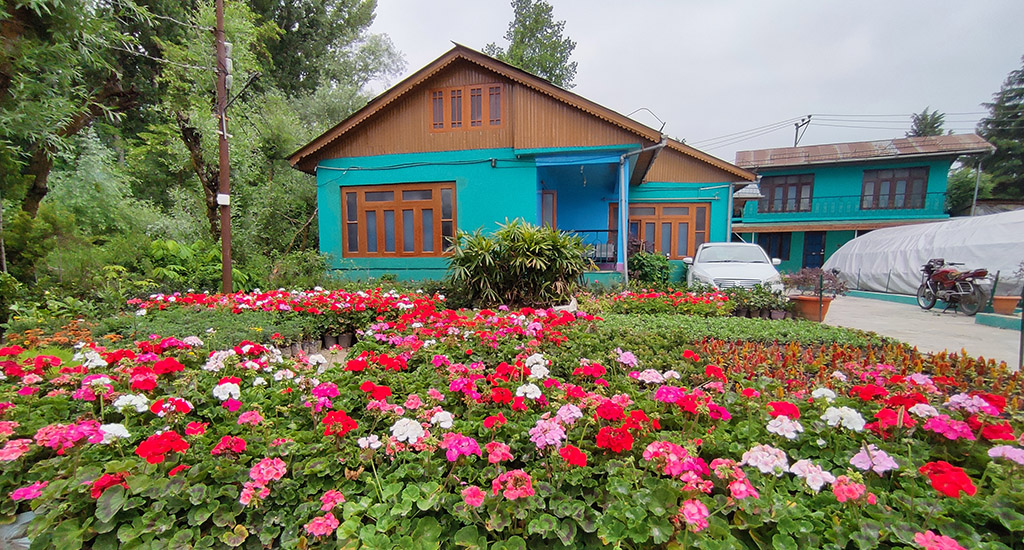
Boom in Kashmir’s bloom business
Stuck at home in the pandemic, many Kashmiris became avid gardeners and are now turning their passion into a business by transforming their backyard patches into plant nurseries.

Stuck at home in the pandemic, many Kashmiris became avid gardeners and are now turning their passion into a business by transforming their backyard patches into plant nurseries.
When the sun peeks over the horizon, septuagenarian Ghulam Mohammad Doji slips into his backyard with a handheld sprayer. He then carefully lifts the polythene sheet covering a patch of seedlings and sprinkles water.
They are the seedlings of prized geranium plants that Doji, a retired gardener from a hotel, is growing to fulfill an order from a local customer.
As daylight breaks, a riot of colours greets you in not only Doji’s plant nursery but the many that now dot the Srinagar valley. Yellow flowering daffodils, white irises, purple petunias, violet pansies and pink geraniums jostle with other ornamental plants, like crotons, coniferous thuja and cacti, for light.
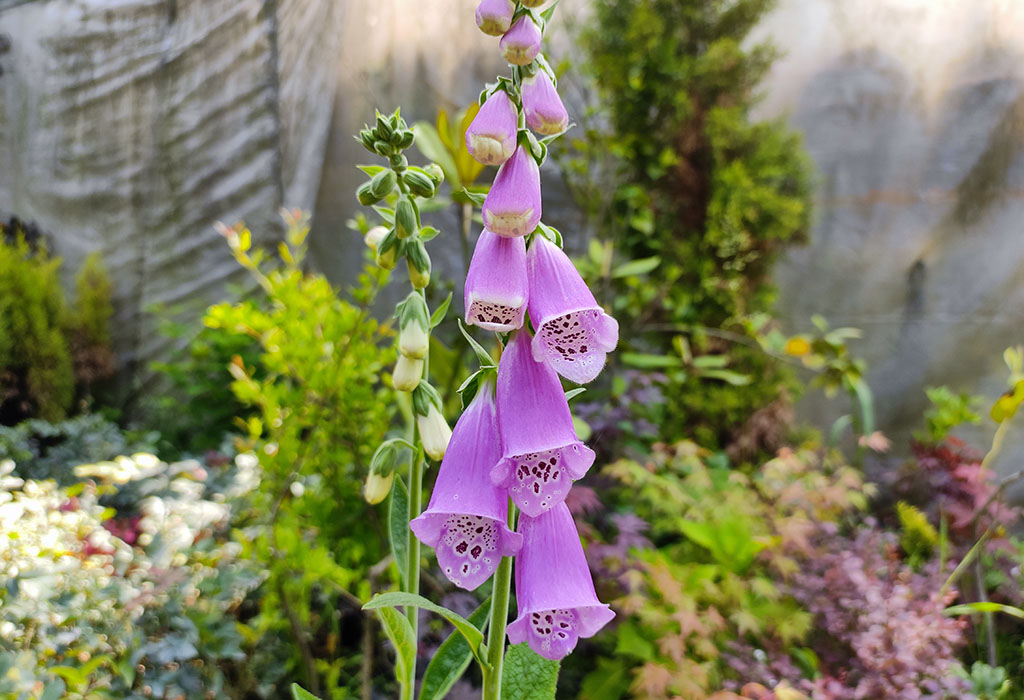
Doji’s is one of the largest nurseries in the valley. Little did he know a decade ago that his love for plants would culminate in a successful nursery business. Doji now employs 20 people.
As the demand for ornamental and flowering plants grows in and around Kashmir, more people like Doji are taking up the nursery business, generating employment and revenue.
A little away from Doji’s nursery is a small cottage housing thousands of plants. The colourful varieties align with the picturesque landscape between the Zabarwan Hills and the Dal Lake.
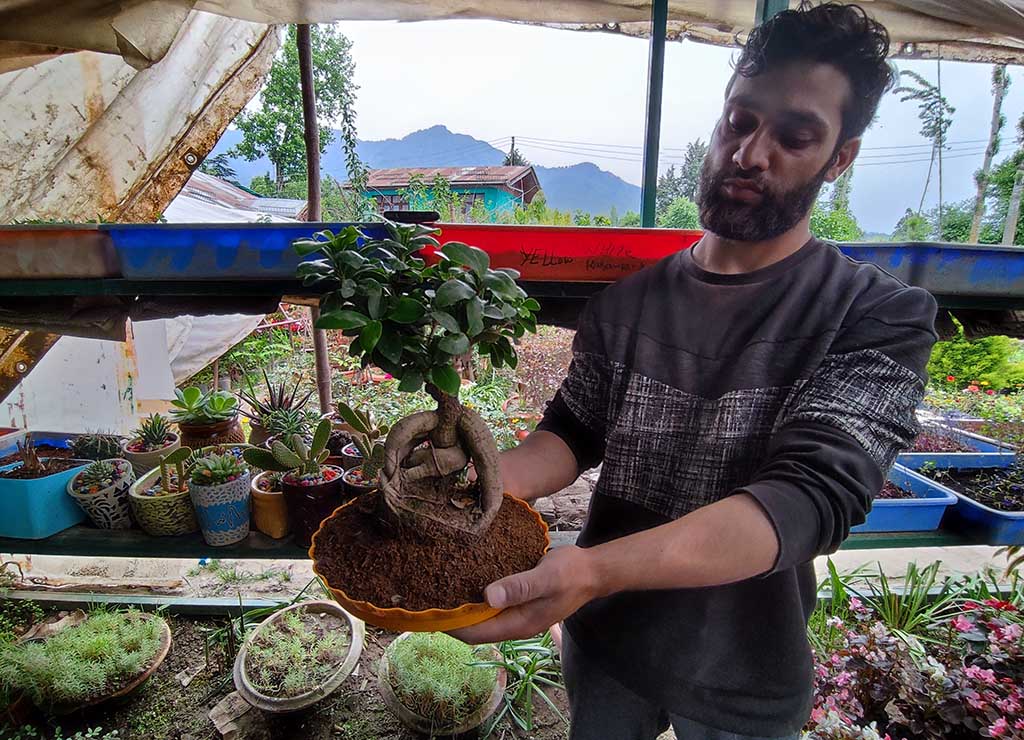
The plants and flowers in the nurseries add colour to the picturesque Boulevard and Fore Shore Road along the banks of the Dal Lake. The area has become the epicentre of the booming – and blooming – nursery business that attracts local tourists as well as those from outside Kashmir.
“I have bought two chinar saplings. I would like to grow this magnificent plant at home,” Shishank Mahajan, a tourist from Mumbai, told Village Square.
Taking selfies with the flowers that provide a colourful backdrop, he said he planned to take some Holland bulbs – the tulips that have become very popular – back home with him.
When Doji’s business picked up, his siblings joined him in running the nursery. Now his son and three nephews are also pitching in.
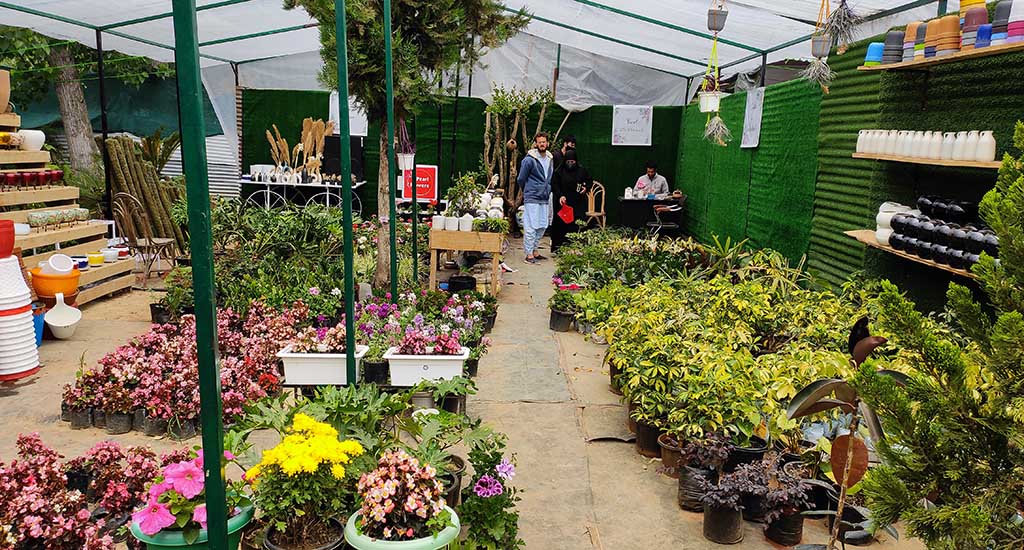
“What was once a hobby has gradually transformed into a flourishing family business,” said Doji.
Ghulam Mohidin, who owns a nursery, said that he worked alone earlier. But now he employs nine people.
“Earlier there was a demand only for local varieties. But now we get plants from outside the valley too. The demand for imported varieties has also gone up. If the demand persists, I will employ more people,” Mohidin told Village Square.
In addition to plants and seeds, these nurseries sell gardening tools, pots and the like.
According to Imran Ahmad, Assistant Floriculture Officer at Srinagar City Parks, more than 300 plant nurseries are registered with the government department. They generated about Rs 10 crore in revenue last year in the Srinagar district alone.
In the last three years there has been a significant increase in the number of women joining the nursery business too, according to government data.
“We’ve issued scores of licenses to new entrepreneurs, including a good number of women in the last few years,” said Ahmad.
Doji’s niece has also joined the family business.
In addition to the women owning plant nurseries, many women are involved in maintaining them.
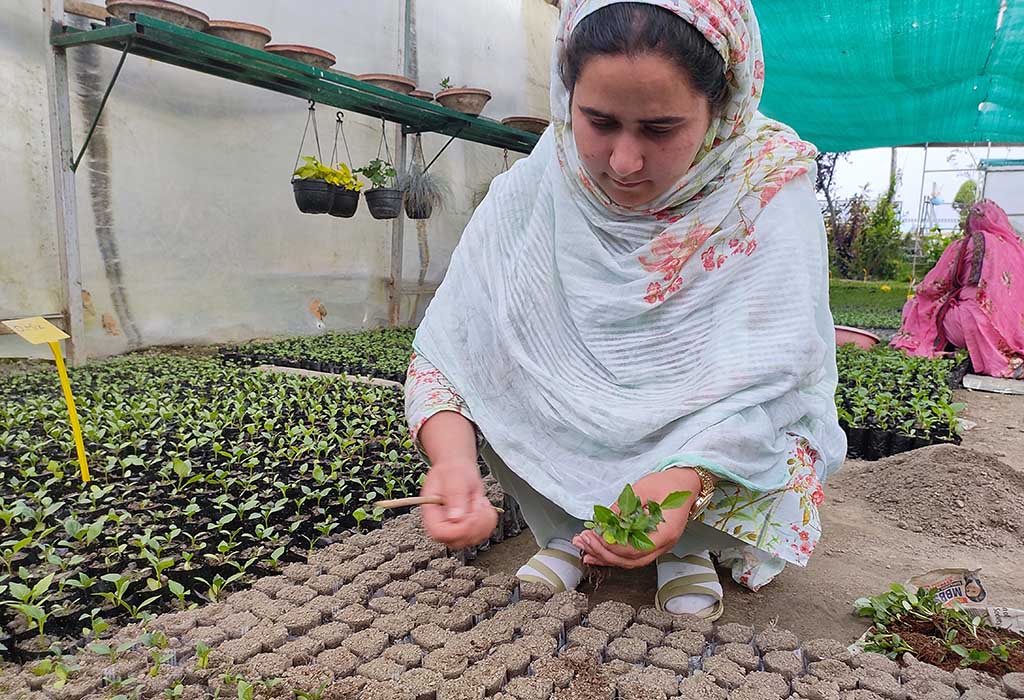
Jameela Akhter of Shalimar said that the men in her family deal with customers, sell and transport saplings. She, along with her college-going daughter, fill soil in the pots and water the plants at their nursery in Shalimar on the outskirts of Srinagar.
Saika Nisar, a young engineering student, turned her backyard into a successful nursery during the pandemic.
Nisar is not the only person who started a nursery during the lockdown.
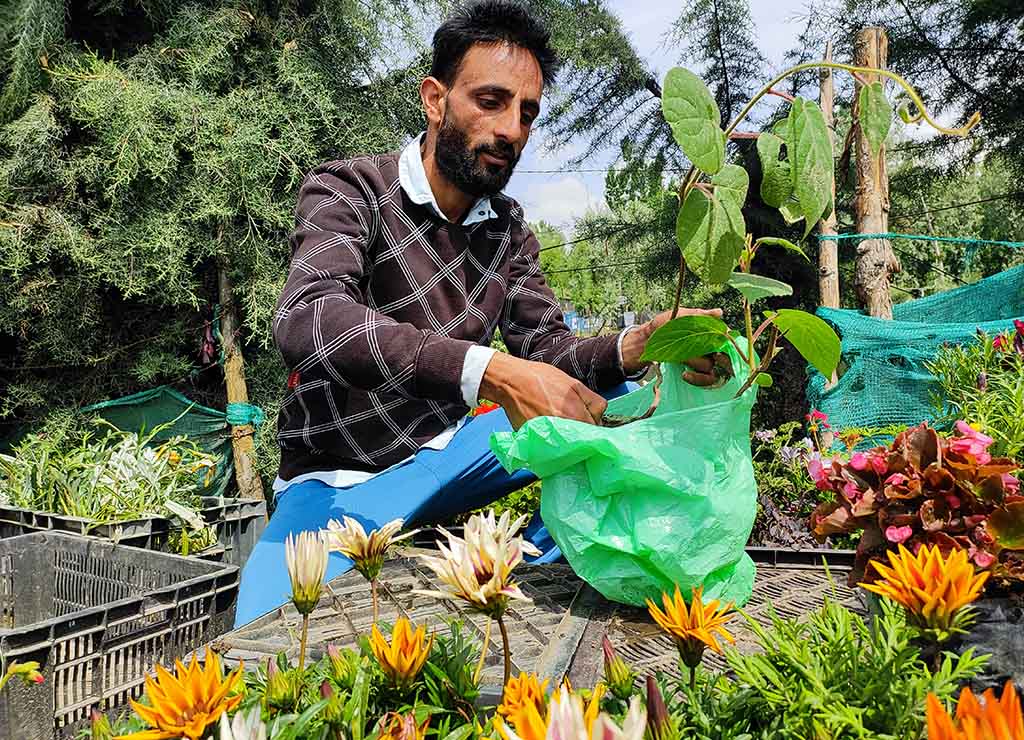
Experts believe that the spurt in nursery business happened because the pandemic triggered people’s interest in nature.
While at home during lockdowns, people spent a considerable amount of time in their gardens. This eventually led to a renewed interest in plants and flowers, which in turn led to a boom in plant nurseries.
“From open lawns to vertical gardens and hanging pots, developing the landscape around their home for aesthetic appeal and mental health has gained momentum in both urban and rural Kashmir,” Ali Mohammad Rather, an eminent sociologist from Srinagar, told Village Square.
The floriculture department of the government supports the entrepreneurs in many ways. They help nursery owners set up poly houses – greenhouses made of polythene sheets – and provide subsidised seeds and training.
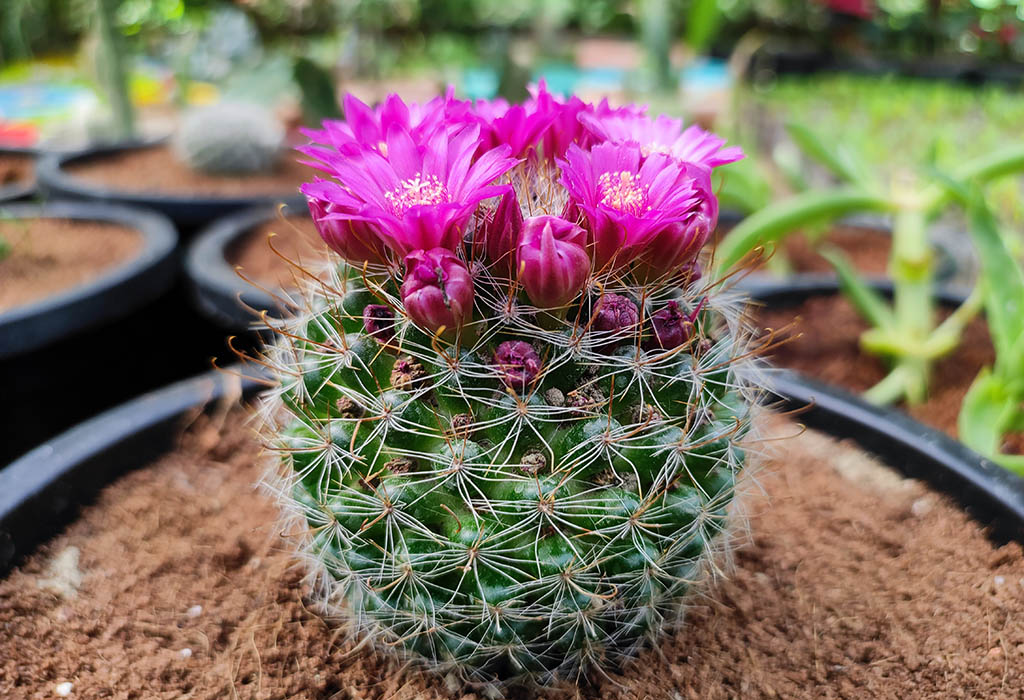
Imran Ahmad said that the sector is still untapped with tremendous scope for the nursery business to grow in the valley.
“Considering the conducive weather and the availability of small lands for establishing plant nurseries, the business provides an ample opportunity for unemployed youth,” he said.
Earlier busy people like Saba Mir, a general physician in Budgam, seldom had time for plants.
“But during the lockdown, my husband and I developed our backyard garden,” she said. “I have planted many varieties like maple, geranium and even black roses.”
As more people invest their time in the aesthetic hobby, the nursery business is blooming by the day in Kashmir.
The lead image at the top of this page shows a backyard that has been turned into a plant nursery (Photo by Nasir Yousufi)
Nasir Yousufi is an independent journalist based in Srinagar.